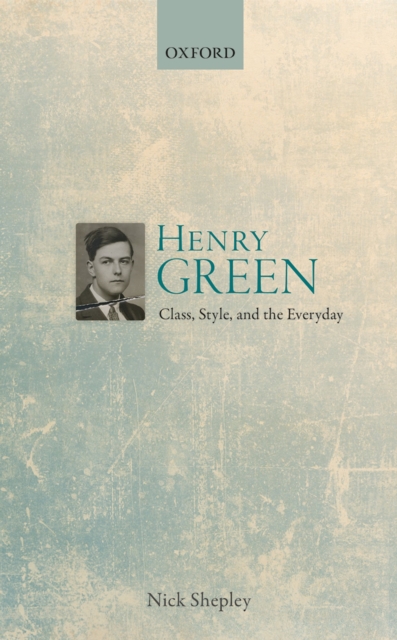
Henry Green : Class, Style, and the Everyday PDF
by Nick Shepley
Description
Henry Green: Class, Style, and the Everyday offers a critical prism through which Green's fiction-from his earliest published short stories, as an Eton schoolboy, through to his last dialogic novels of the 1950s-can be seen as a coherent, subtle, and humorous critique of the tension between class, style, and realism in the first half of the twentieth century.
The study extends on-going critical recognition that Green's work is central to the development ofthe novel from the twenties to the fifties, acting as a vital bridge between late modernist, inter-war, post-war, and postmodernist fiction.
The overarching contention is that the shifting and destabilizing nature of Green's oeuvre sets up a predicament similar to that confronted by theorists of theeveryday.
Consequently, each chapter acknowledges the indeterminacy of the writing, whether it be: the non-singular functioning (or malfunctioning) of the name; the open-ended, purposefully ambiguous nature of its symbols; the shifting, cinematic nature of Green's prose style; the sensitive, but resolutely unsentimental depictions of the working-classes and the aristocracy in the inter-war period; the impact of war and its inconsistent irruptions into daily life; or the ways in which moments orevents are rapidly subsumed back into the flux of the everyday, their impact left uncertain.
Critics have, historically, offered up singular readings of Green's work, or focused on the poetic or recreative qualities of certain works, particularly those of the 1940s.
Green's writing is, undoubtedly,poetic and extraordinary, but this book also pays attention to the clichéd, meta-textual, and uneventful aspects of his fiction.
Information
-
Download - Immediately Available
- Format:PDF
- Pages:208 pages
- Publisher:OUP Oxford
- Publication Date:29/07/2016
- Category:
- ISBN:9780191053870
Information
-
Download - Immediately Available
- Format:PDF
- Pages:208 pages
- Publisher:OUP Oxford
- Publication Date:29/07/2016
- Category:
- ISBN:9780191053870






